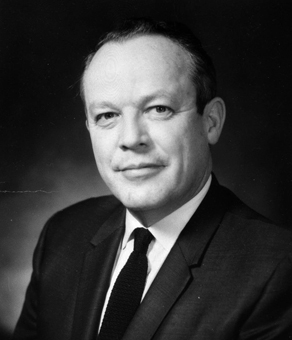Richard Kleindienst facts for kids
Quick facts for kids
Richard Kleindienst
|
|
|---|---|
 |
|
| 68th United States Attorney General | |
| In office June 12, 1972 – April 30, 1973 |
|
| President | Richard Nixon |
| Preceded by | John Mitchell |
| Succeeded by | Elliot Richardson |
| 10th United States Deputy Attorney General | |
| In office January 20, 1969 – June 12, 1972 |
|
| President | Richard Nixon |
| Preceded by | Warren Christopher |
| Succeeded by | Ralph Erickson |
| Personal details | |
| Born |
Richard Gordon Kleindienst
August 5, 1923 Winslow, Arizona, U.S. |
| Died | February 3, 2000 (aged 76) Prescott, Arizona, U.S. |
| Political party | Republican |
| Spouse | Margaret Dunbar |
| Education | Harvard University (BA, LLB) |
| Signature | |
| Military service | |
| Allegiance | United States |
| Branch/service | United States Army |
| Years of service | 1943–1946 |
| Unit | United States Army Air Forces |
Richard Gordon Kleindienst (born August 5, 1923 – died February 3, 2000) was an American lawyer and politician. He served as the United States Attorney General during the early part of the Watergate scandal, a major political event in the 1970s. The Attorney General is the chief law enforcement officer and lawyer for the U.S. government.
Contents
Early Life and Education
Richard Kleindienst was born on August 5, 1923, in Winslow, Arizona. His parents were Gladys and Alfred Kleindienst.
School and Military Service
He first attended the University of Arizona. During World War II, he served in the United States Army Air Forces from 1943 to 1946.
After his military service, he went to Harvard College and then Harvard Law School. He finished law school in 1950.
Early Political Career
From 1953 to 1954, Kleindienst was a member of the Arizona House of Representatives. After this, he worked as a private lawyer for about 15 years.
He also led the Arizona Republican Party for several years. In 1964, he ran for Governor of Arizona but did not win the election.
Working with Barry Goldwater
In 1964, Richard Kleindienst was asked by his friend, Senator Barry Goldwater, to help with his campaign for president. Goldwater wanted Kleindienst to be the Director of Operations for his presidential campaign.
Goldwater said he would only run if three close Republicans, including Kleindienst, led his campaign. Even though some experts suggested someone else, Goldwater insisted on Kleindienst. They decided that Kleindienst would share the leadership role.
Serving in the Nixon Administration
After Richard Nixon won the 1968 presidential election, he asked John N. Mitchell to be the Attorney General. Mitchell agreed, but only if Kleindienst could be the Deputy Attorney General.
Deputy Attorney General
In 1969, Kleindienst stopped his private law practice to become Deputy Attorney General. In this role, he dealt with a government case involving a company called ITT.
President Nixon and his aide, John Ehrlichman, asked Kleindienst to drop the case. This made it seem like they were trying to help ITT. Kleindienst later told Congress that no one had interfered with the case, but he did not mention Nixon or Ehrlichman.
Becoming Attorney General
On February 15, 1972, Attorney General Mitchell left his job to work on Nixon's re-election campaign. President Nixon then chose Kleindienst to take his place.
Kleindienst served as Acting Attorney General for a few months. The Senate approved his appointment on June 12, 1972. Some senators tried to stop his approval because of his involvement with the ITT case, but they were unsuccessful.
The Watergate Scandal
Just five days after Kleindienst became Attorney General, a break-in happened at the Democratic National Committee headquarters in the Watergate complex. This event was part of a secret operation planned by people working for the Committee to Re-Elect the President (CRP).
When the burglars were arrested, one of the CRP leaders, Gordon Liddy, asked Kleindienst to arrange their release. Liddy hoped this would keep CRP's involvement a secret. However, Kleindienst refused. He ordered that the Watergate burglary investigation should continue like any other case.
Kleindienst resigned from his position on April 30, 1973, during the Watergate scandal. This was the same day that other high-ranking officials in the Nixon administration also left their jobs.
Later Life and Legacy
Richard Kleindienst passed away on February 3, 2000, at the age of 76. He died from lung cancer.
Images for kids
 | Mary Eliza Mahoney |
 | Susie King Taylor |
 | Ida Gray |
 | Eliza Ann Grier |


